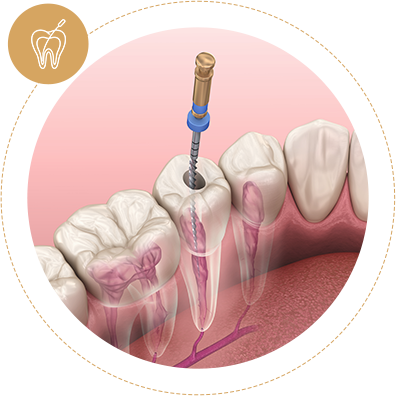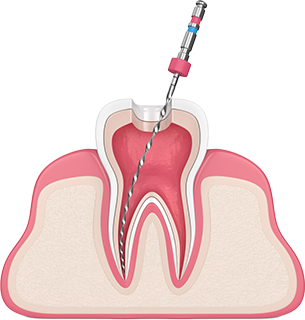When do you Need
Root Canal Treatment?
The signs indicating the need for a root canal include persistent toothache, heightened sensitivity to hot or cold temperatures, swelling or tenderness around the affected tooth, and darkening or discoloration of the tooth.

Severe Tooth Decay
Extensive decay affecting the pulp requires removal to save the tooth.
Infected Pulp
Bacterial infection in the tooth's inner tissue necessitates cleaning and treatment.
Deep Cavities
Cavities that penetrate deeply into the tooth may lead to pulp inflammation or infection.
Traumatic Tooth Injury
Physical trauma to the tooth can damage the pulp, suggesting root canal treatment.

Persistent Toothache
Continuous or recurring tooth pain often signifies underlying pulp issues.
Sensitivity to Temperature
Increased sensitivity to hot or cold indicates potential pulp involvement.
Swelling or Tenderness
Inflammation or tenderness around a tooth might signal an infected pulp.
Tooth Discoloration
Darkening or change in tooth color can indicate pulp damage or decay.


